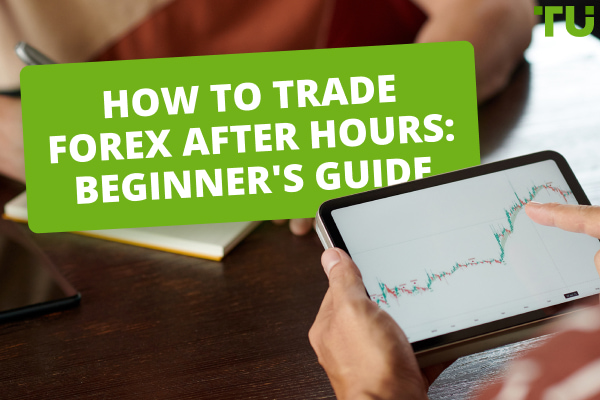Best Short Term Trading Strategy
Best Short Term Trading Strategies are:
Range trading
Short-term trading is a type of trading in stock markets or futures markets where traders open and close positions within a short time frame. A short time frame in this context means that the trades are opened and then closed within a matter of days or weeks. However, this ‘short’ duration of time could also be a matter of hours.
Is Short-Term Trading a Good Idea?
First of all, it must be said that in short trading you can create a successful business, but most novice traders lose and leave in the first year.
Short-term trading is a common practice among institutional and retail traders trying to profit from short-term trends or small price movements. It has several advantages for these traders such as:
Short-term trading allows traders to make more profits over time. Active participation in the market is encouraged.
Traders can reinvest their profits into their capital to make more trades.
Traders can close their trades overnight to avoid incurring losses from unexpected market changes.
Short-term trading offers flexibility because profits are not dependent on the maturation of the security.
Traders face fewer risks because the amount of money invested in each trade is smaller.
On the other hand, short-term trading could also be a troublesome approach:
Taxes, inflation, and brokerage commission fees reduce the profits earned.
It requires a high level of skill, and even when a trader is highly trained, they need to spend several hours in front of a screen. It is hard work.
Knowing which direction a trade will go is often down to a guessing game. The only way you will be more successful at predictions is with a high level of skill and extensive market analysis, but even that only increases success marginally.
However, as with every trading technique, there are strategies to minimize risk and make it work. Short-term trading is no exception.
6 Short Term Trading Strategies to Know
Short-term trading can be an accessible form of trading if you need flexible trading with quick returns and are ready to dedicate the time and effort needed. With that in mind, here are 6 short-term trading strategies to make the adventure worthwhile:
Day Trading
Day trading is a form of speculation trading where the trader buys and sells within the same day. This means that in day trading all trades are completed during the day and fresh ones are opened at the beginning of the next market day.
Day trading is popular because it is simple to learn. With proper risk management, it can even be fun to do. Another major advantage of day trading is the fact that it offers traders assurance that their trades will not be affected overnight. Market-altering news may happen during the night forcing it to open substantially lower. Being able to close the trades till the next day is a great way to save money.
Scalping
Scalping is a technique where a trader buys and sells an individual stock multiple times throughout the same day. The aim of this is to accrue multiple small profits in a day as opposed to one large profit.
If executed with a strict exit strategy, scalping can be very profitable. Since the trader is making smaller trades, they can leverage smaller movements in stock price, regardless of the stock's overall trend.
Swing Trading
Swing trading is similar to day trading in that they are both speculative trading methods. However, swing trading requires the trader to hold the asset for more than a day. This strategy aims to profit from any price changes that may happen in those days.
Range Trading
Range trading is a strategy that involves identifying the range of overbought and oversold currencies and then trading with these price ranges. An overbought currency is trading at a price higher than its fair value, for whatever reason. An oversold currency is trading below its fair value.
Range traders identify these price differences and use them to confirm entry points.
Breakout Trading
Closely related to range trading, breakout trading is a strategy where a trader’s position is determined by what position a stock price is in. If it breaks above resistance, the trader enters a long position. If it breaks below support, the trader enters a short position.
Top 5 Tips For Successful Short-Term Trader
Here are some tips to get you started on short-term trading:
Prioritize Self-Education
The most important step to short-term trading is gaining as much knowledge as possible. However, it needs to be knowledge that counts. There is a lot of information out there, and the fact that trading is complex makes it seem impossible to know where to start. Therefore, find someone to guide you.
The first and most effective option is finding a mentor. If you can find one in person, the better. If not, follow a trading content creator who specializes in short-term trading. Read their books, watch their videos and even sign up for their newsletter. Many of these mentors usually have courses or free tutorials you can dedicate some time to. You could also find free trading courses from other content creators.
There are also many short-term trading blogs, articles, and even webinars online that you can try. The whole point is to remain curious throughout your short-term learning journey because it is only the beginning. With short-term trading and other forms of trading as well, you will need to keep learning and analyzing markets and news every day.
Learn Risk Management Techniques
Since there have been people trading for nearly fifty years, there are numerous methods people have discovered to avoid risk as much as possible. Though imperfect, these methods have helped traders navigate stock markets victoriously.
Here is a list of 5 forex risk management strategies you should pay attention to while learning how to do short-term trading:
Understanding how short-term trading works before trading on a live account
Practicing for the recommended time on a demo account
Setting a risk-reward ratio
Using stops and limits
Risk management will help you avoid losses in the initial weeks of your trading career. So much so that you may not feel the impact of your mistakes. However, there is one strategy that crowns them all: having a sound trading plan.
Always Have a Trading Plan, Entry Point, and Invalidation
A trading plan is a guide on how a trader will find and execute trades. It thus involves everything from outlines on how to manage specific positions, how long their swing trades will take, and how large their positions will be.
A trading plan is like a set of trading rules that dictate how you conduct yourself while trading. It is especially important for day trading which can evoke strong emotions.
Two major things you should consider in your trading plan are entry points and invalidation. An entry point is a price at which investors buy or sell securities. The invalidation points indicate where deals are no longer legitimate. These, on the other hand, are crucial for scalping.
Learn to Control your Emotions
Short-term trading requires traders to make several decisions, calling to mind a lot of complex knowledge, but within a short period. Sometimes, these decisions have to be made within hours. All this in addition to the fact that money, and very possibly livelihood are involved creates a cocktail of emotional volatility.
A trader can either be governed by fear of losses, or greed for gains. Both of these states of mind are cloud judgment, making traders more susceptible to making bad decisions.
Experiment with Trading Strategies
The five strategies discussed in this article all have their merits. Although some may seem more attractive than others, there is no better way to know for sure than to try them out for yourself.
For beginners, the best trading strategy to try out is swing trading. These methods are often less emotionally involved as compared to day trading, even though they are both speculative methods of trading.
After some time, progress to the other techniques until you find one you are comfortable with. Remember to practice these techniques on demo accounts before testing them on your live account.
How to Begin Your Trading Career
Study the market
Every decision you make will depend on the condition of the market at the time. Study the markets. Learning how to analyze markets is especially important for short-term trades that depend on rapidly changing short-term trends.
Choose a Broker
Find a regulated broker that has all the features you need to get started. You will be spending a lot of time trading, so find one that you are most comfortable with.
Start with a demo
Practice consistently on a demo account for a minimum of 6 months. This is especially important for the day and range trading.
Fund your Account
Once you start a live account, put in a small fraction of your savings. Never invest more than you can safely risk.
Experiment and Learn More
Do not stick to a single strategy. Try the five different ones mentioned here on your demo account and learn what works for other short-term traders as well.
How Much Money Do I Need to Begin?
For day trading in the US, traders need minimum equity of $25k to trade. This requirement is part of the day trading restrictions set up to protect traders' profits in the US. Pattern day traders must do four or more day trades over five business days using their margin account. Day trades just be more than 6% of the account’s total trades within the five business days.
In other countries, there is no pattern of day trading nor regulatory designation that helps traders avoid massive losses. In such countries, it is better to limit yourself to a small amount of capital. The loss of less capital will not affect material well-being.
How Much Can I Make?
The most successful day traders become millionaires, some within only a couple of years in the business. It is possible to accomplish great financial feats with trading. However, the majority of these successful people did not get to where they are through a get-rich-quick mentality.
Successful trading is centered on good trade execution rather than a fixation on money. The only way a person will make massive profits is if they are disciplined enough to be consistent in implementing the skills they learn. Traders also need to be patient to make substantial amounts.
Where Can I Trade?
Most forex trading brokers allow you to practice short-term trading. However, it is best practice to stick to the best platforms available for the best experience. These are our picks for the best trading platforms you can try.
Oanda
Oanda is the best platform for forex trading. It has lower fees compared to other brokers on the market. This platform is well known for having great support for third-party features and outstanding market research. It is also a well-regulated broker, if not the best regulated, and is trusted throughout the industry.
Interactive Brokers
Interactive Brokers is the leader in stock trading. The low-interest margins and highly advanced, user-friendly features are great for beginners. The platform also boasts a large selection of tradable securities making the trading experience wholesome.
Summary
Short-term trading is a flexible and accessible trading opportunity for millions of traders around the globe. There is no reason why you should not give it a shot if you have the time and resources.
With the right strategy, every trading technique will be worth your time and money. This is why trading is the best investment and business yet.
FAQs
Which Strategy is Best For Short-Term Trading?
Day trading is the most popular strategy because it can be used for multiple asset classes and financial markets.
Which Time-Frames Are Best For Short-Term Trading?
There is no specific ‘best’ time frame. It can range from 15 to 200 days and depends on when the trader feels confident enough about the direction a stock’s trade will take.
How Long is a Short-Term Trend?
Any price trend that lasts less than three weeks.
How Long is a Short-Term Trade?
Short-term trades last a few days to a few weeks.
Team that worked on the article
Andrey Mastykin is an experienced author, editor, and content strategist who has been with Traders Union since 2020. As an editor, he is meticulous about fact-checking and ensuring the accuracy of all information published on the Traders Union platform. Andrey focuses on educating readers about the potential rewards and risks involved in trading financial markets.
He firmly believes that passive investing is a more suitable strategy for most individuals. Andrey's conservative approach and focus on risk management resonate with many readers, making him a trusted source of financial information.
Dr. BJ Johnson is a PhD in English Language and an editor with over 15 years of experience. He earned his degree in English Language in the U.S and the UK. In 2020, Dr. Johnson joined the Traders Union team. Since then, he has created over 100 exclusive articles and edited over 300 articles of other authors.
The topics he covers include trading signals, cryptocurrencies, Forex brokers, stock brokers, expert advisors, binary options. He has also worked on the ratings of brokers and many other materials.
Dr. BJ Johnson’s motto: It always seems impossible until it’s done. You can do it.
Mirjan Hipolito is a journalist and news editor at Traders Union. She is an expert crypto writer with five years of experience in the financial markets. Her specialties are daily market news, price predictions, and Initial Coin Offerings (ICO). Mirjan is a cryptocurrency and stock trader. This deep understanding of the finance sector allows her to create informative and engaging content that helps readers easily navigate the complexities of the crypto world.











